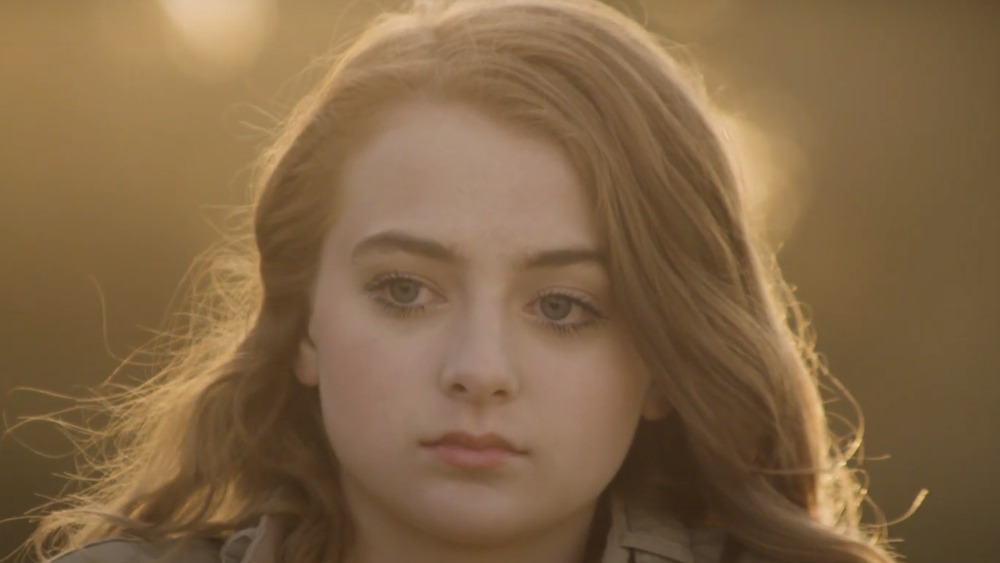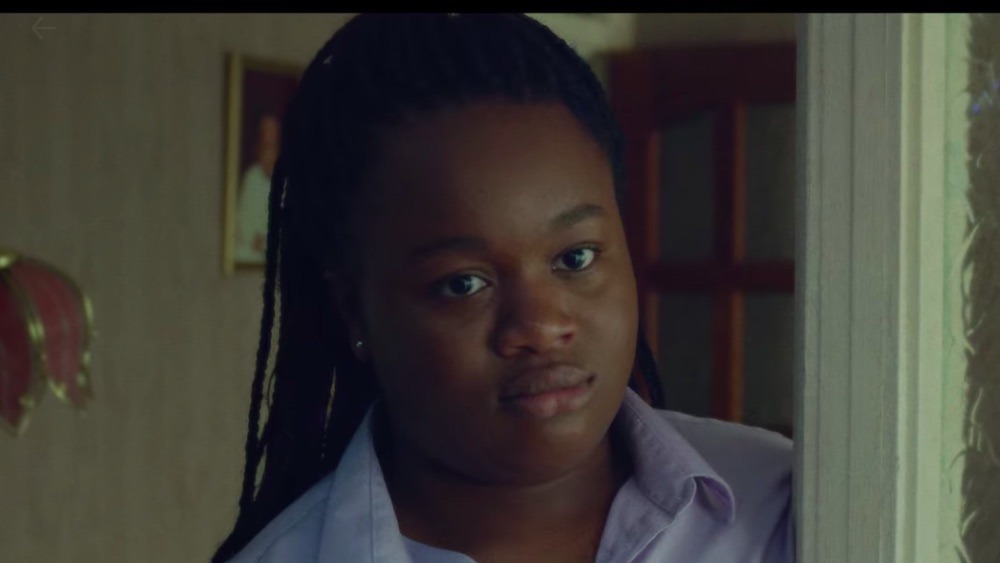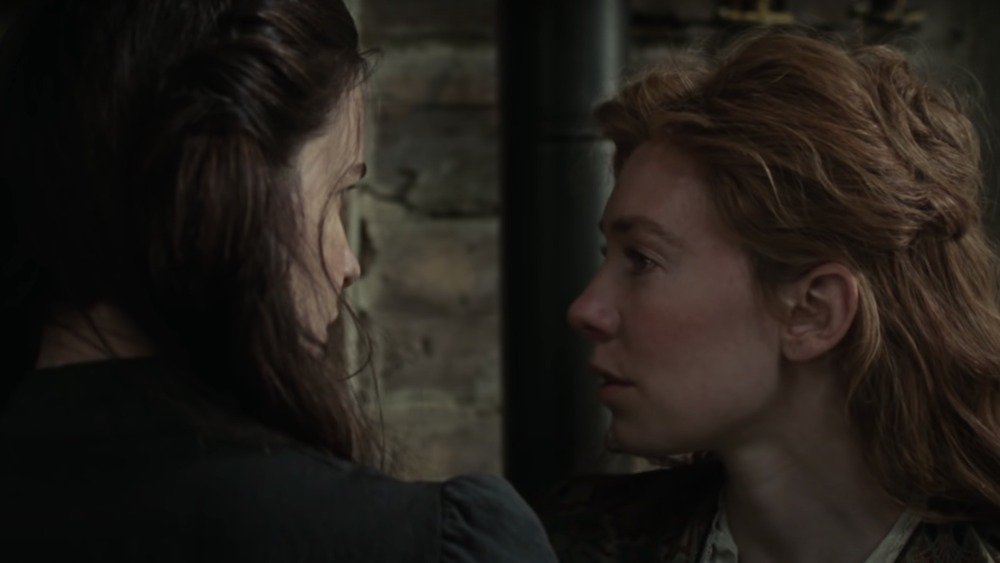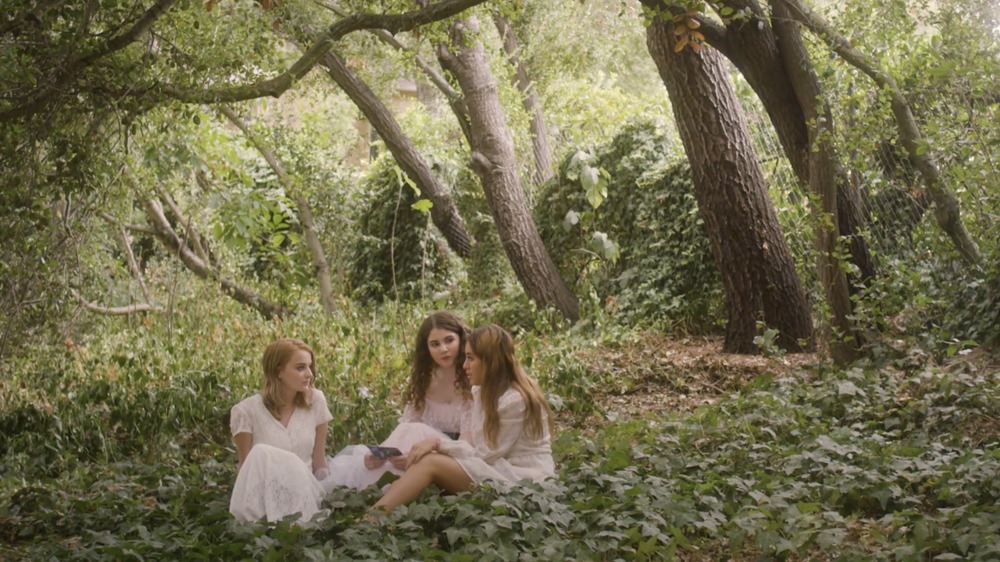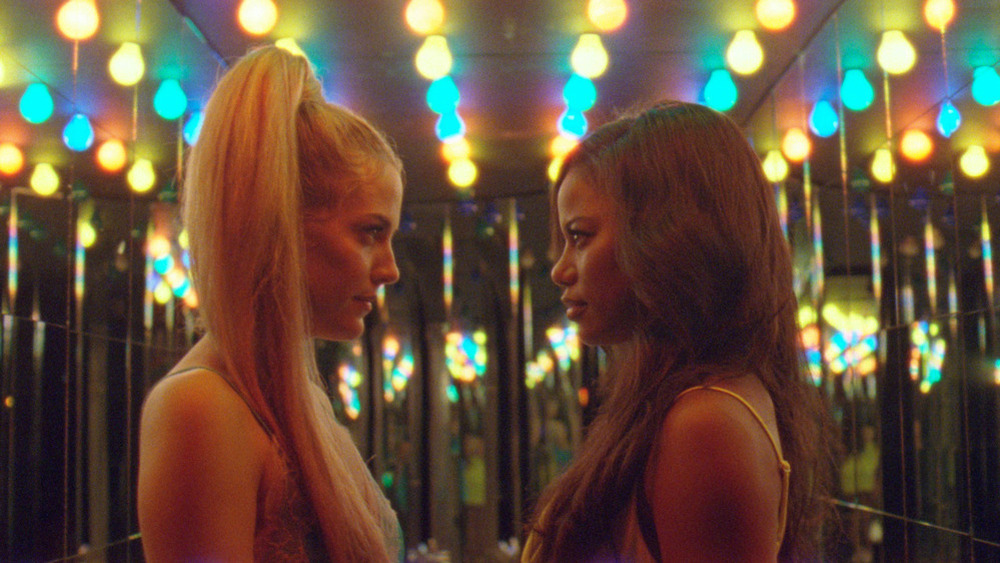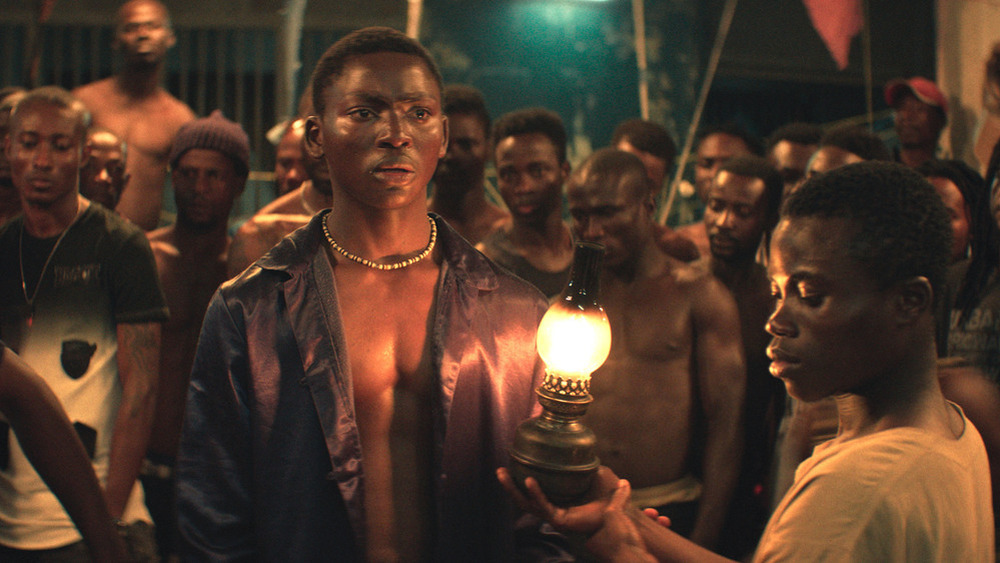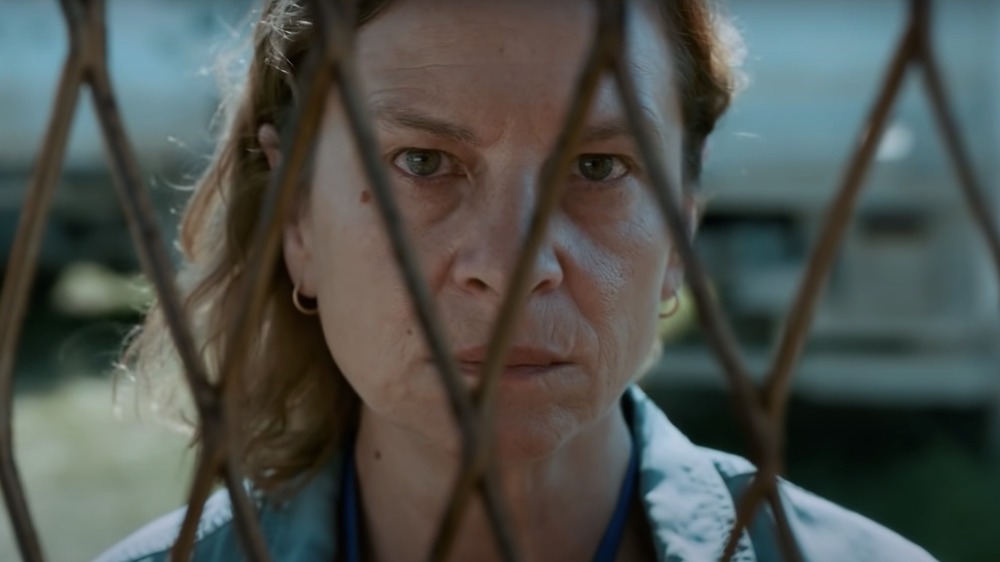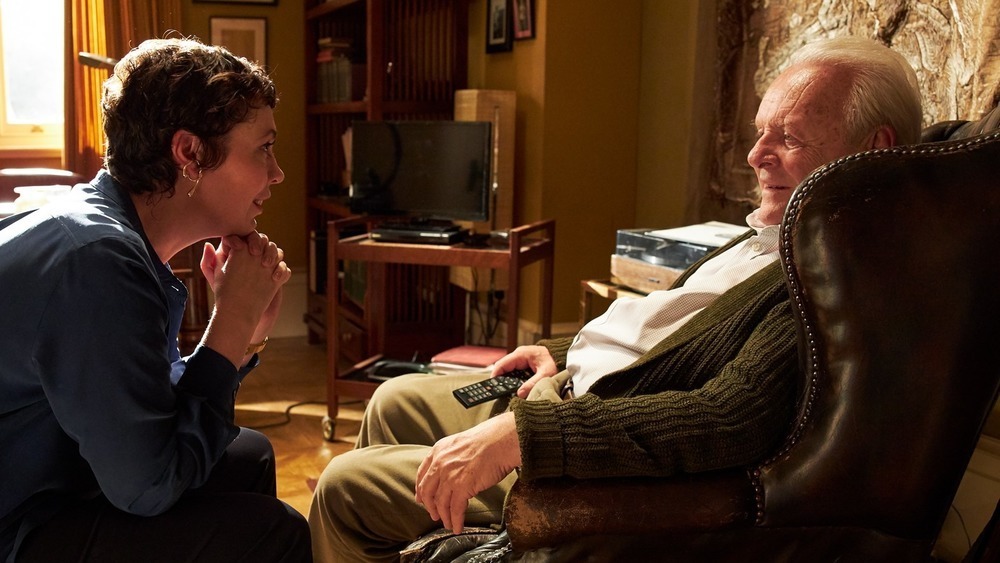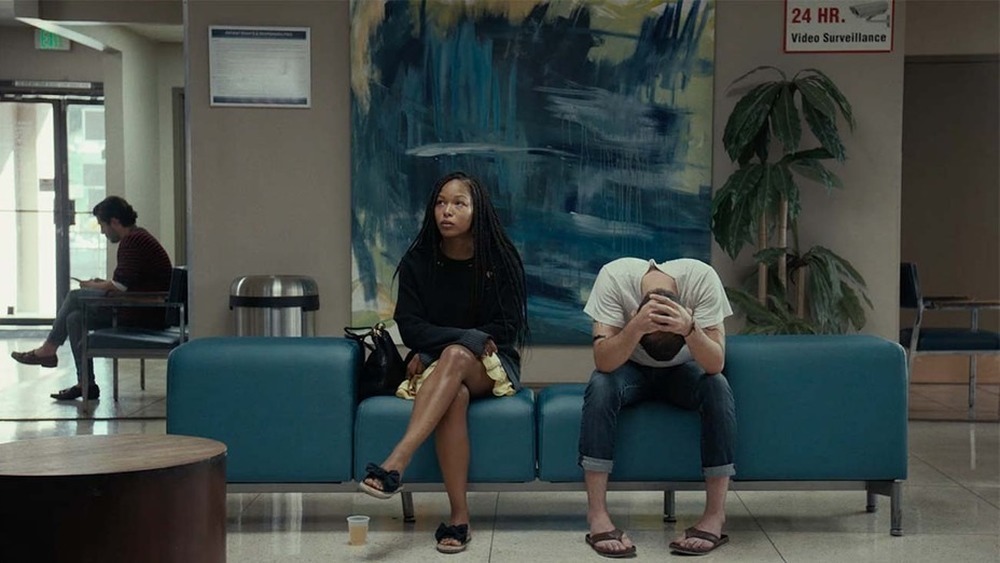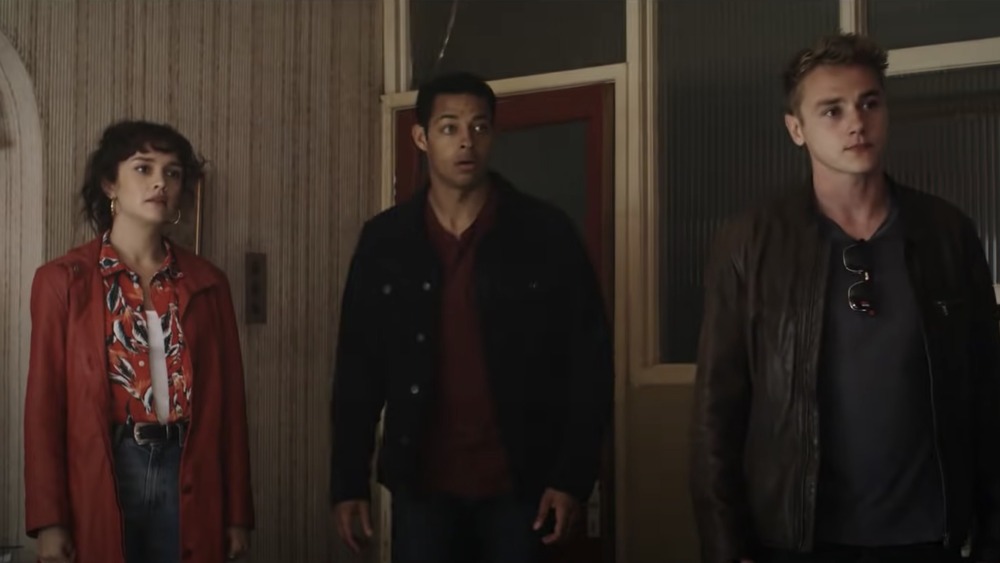The Best Indie Movies Of 2021
With the Academy Awards approaching — in a delayed fashion this year, due to COVID-19 — films are currently at the forefront of minds for many. There are plenty of films from last year still getting much-deserved attention, such as Nomadland or Promising Young Woman — the two films responsible for two women being nominated for Best Director in the same year for the first time ever. Yet, 2021 has already released a plethora of its own attention-worthy films for cinephiles to get excited about.
Some of the movies most worthy of audience attention these days come down to recently released indie films, which include exciting debuts from directors and career-best performances from seasoned actors alike. These indie films are also some that, with the high praise they're already getting, may show up again for Oscars season next year.
With that in mind, here is a rundown of some of the most notable indie films that 2021 has seen so far.
Little Fish
Chad Hartigan's Little Fish presents a near-future Seattle, in which a raging epidemic has overcome the world in the form of a fictional condition called Neuroinflammatory Affliction. Also referred to as NIA, this condition is akin to Alzheimer's in that those afflicted rapidly lose their memories, regardless of age or existing health. The film centers on a committed couple, Jude Williams (Jack O'Connell) and Emma Ryerson (Olivia Cooke), who must face what NIA means for the future of their relationship.
Little Fish is getting big attention for the ways in which it makes an expansive story into an intimate narrative about one couple and how a major epidemic impacts individuals on a personal level. Further, both lead actors are being lauded for pulling the weight of the film via their chemistry and individual acting abilities. Entertainment Weekly writes, "[Cooke] and O'Connell both bring the cool project a necessary warmth that sells their relationship, which is the real star here, enough to carry the movie."
Despite comparisons to other films like Eternal Sunshine of the Spotless Mind, critiques concede that Little Fish has enough unique elements to differentiate itself. IndieWire calls it "a loving ode that stands on its own as a creative, inventive romance for a broken time." Another part of the movie garnering big attention is an ending that is genuinely surprising, no matter how well you think you've got the nonlinear timeline sorted out.
Rocks
Directed by Sarah Gavron, Rocks presents the heartbreaking portrayal of a young Black British teen named Olushola Omotoso (Bukky Bakray), nicknamed "Rocks," who is left to fend for herself and her brother when their mother abandons them. With the help of friends, they work to keep themselves out of the foster system.
With folks ranking it among Gavron's best work (her past films include Suffragette and Village at the End of the World), Rocks is told through a compassionate and sincere storytelling lens. The Independent, in their review, deems it "the most authentic film about British teens in years."
Part of the flick's authenticity stems directly from its cast, including Bakray and the young supporting actors who make up the group of friends so important in the lie of Rocks. Refinery29 draws attention to this cast of predominantly young newcomers, writing, "You can't help but feel the warmth of nostalgia as you watch Rocks and her friends trying to find the joy in a world that is so often against them."
The World to Come
Set in the 19th century, Mona Fastvold's The World to Come explores a forbidden attraction between two women who have recently become neighbors, Abigail (Katherine Waterston) and Tallie (Vanessa Kirby). Both have problems within their respective marriages — Abigail's husband, Dyer (Casey Affleck) is distant, while Tallie's husband Finney (Christopher Abbott) is controlling — which only makes their connection more inevitable.
Many critics have brought up the film's similarities to other recent queer period pieces — Portrait of a Lady on Fire, The Favourite, Carol, the list goes on — but insist that The World to Come sets itself apart. The Queer Review points out that its effect may come as a surprise, writing, "The power of The World to Come creeps up on you, doesn't let go once it takes hold, and cuts deep."
Further, its two leads, Kirby and Waterston, have received an abundance of praise for their performances — the San Jose Mercury News deems their passion and chemistry "electrifying." But, other critics have heaped attention on Fastvold, crediting her reins on the story and cast as what makes the film worthwhile. The Lens writes, "It is Fastvold's eloquent and unexpectedly eccentric vision that transforms the film from yet another white lesbian period romance into a gorgeous, heartbreaking work."
Ham on Rye
Ham on Rye, directed by Tyler Taormina in his debut, centers on a mysterious, bizarre rite of passage for a group of teenagers in a suburb likely somewhere in middle America. The kids — each resembling a classic high school archetype but not defined by it — dress in their grandparents' best clothing and make their way to some sort of school dance, on which they've placed a lot of importance.
If it all sounds a bit elusive, that's because it's intended to be so — The Hollywood Reporter refers to it as "a puzzling but artful look at teenage alienation," while the Boston Globe calls it "gentle, genuine American surrealism."
The film is considered simultaneously compelling and hard to watch, mostly due to how it holds nothing back in presenting just how awkward and visceral the high school years can be. Rolling Stone, in a rave review, comments on Taormina's "sincere sense of wonder" in how he approaches shooting these teen-centric scenes. Rolling Stone continues, "[The film] is, like the people therein, one of a kind and completely unforgettable."
Zola
If anything, Zola has quite the unique origin story. It is based on a Twitter thread from a waitress named Aziah "Zola" Wells, who narrated her experience on a road trip with a sex worker. Staying true to its origins in director Janicza Bravo's film, Zola (played by Taylour Paige) meets a sex worker named Stefani (Riley Keough) at the restaurant where she waitresses, strikes up a friendship, and soon the two of them quickly bond over pole dancing.
The next day, Stefani invites Zola along with her on a road trip to Florida, where she plans to make money working as a stripper. Zola agrees and, from then on out, the story becomes increasingly crazier along the way.
Much of the film's praise is going to its director Bravo, who has previously helmed the films Lemon and Forever as well as an episode of Atlanta. Xtra Magazine claims that Zola, however, is the Bravo project that "cements her reputation as a filmmaker to watch."
Apart from the directing, there are plenty of other elements in the film to admire, from acting to cinematography — and Jezebel declares them all praise-worthy. Their review reads, "From the writing and directing to the costuming and production design, Bravo and her team transform the famed series of tweets into an of-the-moment film that captures the same frenetic energy of the story."
Night of the Kings
In Night of the Kings, the French-language film by writer-director Philippe Lacôte, a young boy (Bakary Koné) is caught pickpocketing. As punishment, he is sent to prison in a forest called "La Maca," which turns out to be absent of guards and ruled instead by its inmates. Per tradition the young boy, as the newest inmate, is made the "Roman" and is tasked with acting as storyteller. Scared and uncertain what fate awaits him after he finishes his story, the boy decides to make his tale last all night.
The San Jose Mercury News brought attention to the ways in which storytelling is at the forefront of this film, writing, "It's a transcendent love song to the magnificence of storytelling — how words can create a legend and also soothe, heal and, in some cases, save lives."
Fittingly, a film with storytelling at its center has found praise for its own leading storyteller. The Boston Globe wrote, "Lacôte is a master at staging hectic crowd scenes in which chaos suddenly arranges itself into patterns, connections, and poetry." A film described as "transcendent" and akin to "poetry" sounds like one worth tracking down, for sure.
Quo Vadis, Aida?
Writer-director Jasmila Zbanic's film Quo vadis, Aida? is set in Bosnia in 1995, but audiences could be forgiven for drawing parallels to more recent events involving imperiled citizens seeking asylum and shelter. Aida (Jasna Đjuričić) is a translator for the United Nations, finding herself seeking shelter from the UN Camp when the Serbian army suddenly takes over her town of Srebrenica. Thanks to her job, Aida finds herself in the midst of the inner workings of the crisis.
The film is not easy to digest, with the very heavy subject of genocide at the forefront, but that's its intention. On this topic, Deadline Hollywood Daily writes, "It's a despairing, nay, devastating piece of work that leaves one drained, exhausted, appalled and admiring, which is the desired and only plausible reaction."
Zbanic receives much of the praise for the piercing quality of the film and its subject matter, for her sharp, keen and empathetic direction. Shadows on the Wall writes, "Zbanic takes a skillful approach that immediately gets under the skin, pulling us into the urgency of the situation." The bulk of critics seem to be in agreement about the "getting under the skin" part, leaving no other conclusion than Quo vadis, Aida? — which translates to "Where are you going, Aida?" — will make for a memorable, if uneasy, viewing experience.
The Father
Based on his own play of the same name, Florian Heller co-adapted The Father into a film with Christopher Hampton, and the result is a moving, immensely empathetic film (and one quite worthy of its six Oscar nominations).
It follows an 80-year-old man named Anthony (Anthony Hopkins), who is slipping further and further into dementia. His daughter Anne (Olivia Colman), who has become his primary caregiver, is struggling under the weight and distraught over watching his memory disintegrate.
Much of what makes the film so memorable is the way it is unflinchingly honest about how dementia not only overtakes a person, but how it also comes at their loved ones. The Boston Globe called the film "ruthless" (in a good way), while the Sydney Morning Herald called the depiction of failing memory "scarier than anything Freddy Krueger ever threw at us."
Moreover, both Colman and Hopkins have been universally praised for their captivating performances. They both scored an Oscar nomination for these powerful performances — marking the second for Colman and far from the first for Hopkins. With their dynamic efforts as the film's foundation, the poignantly emotional story of The Father is taken to powerful heights.
Test Pattern
Test Pattern, written and directed by Shatara Michelle Ford, focuses on an interracial relationship between a Black woman named Renesha (Brittany S. Hall) and a white man named Evan (Will Brill). After Renesha is sexually assaulted, Evan drives her around the city looking for a rape kit. During this search, they face hurdle after hurdle, all of which offer sharp observations on how women (and especially women of color) are treated within the healthcare system in the midst of a crisis, such as the all-too-infrequent cases of sexual assault or rape.
With a timely subject at its forefront, Test Pattern has the opportunity to truly make a piercing and poignant punch — according to the critics, it succeeds. Rolling Stone writes, "This is a film that takes a slim setup, all of it predicated on difference, and runs with it, renders it into something as intellectually persuasive as it is dramatically refined."
Like many great films, Test Pattern will sit with you long after you watch it. The Playlist declares that the film's intention to showcase "the institutional injustices suffered by Black women" succeed in a "potent, provoking effect."
Pixie
Pixie is a black comedy thriller with infused elements of crime and mystery, written and directed by the father/son duo of Preston and Barnaby Thompson. The titular character, Pixie Hardy (Olivia Cooke), has a plan to avenge her mother's death, which will also result in her acquiring enough money to move out of her small town. However, when the plan goes awry, she finds herself on the run from a criminal gang, along with a couple misfits who end up in the midst of Pixie's situation. Oh and by the way, did we mention it has Alec Baldwin as a gun-toting priest with an Irish brogue?
The bulk of critical praise has gone to lead actress Cooke, who takes on her sweet-smiling mastermind role with an infectious fervor. The Chicago Reader claims that Cooke is "reason enough" to check out the film, citing her "mesmerizing acting chops." Moviefreak.com calls her the "driving force" of the entire film, adding that her grip on her character's arc is "masterful." And, if you're not fully convinced of Cooke's compelling nature yet, Pop Culture Leftovers declares that Pixie is "Cooke's movie through and through."
As wonderful as Cooke is in the role, there are other elements of the comedy thriller that has folks talking. The blend of different genres has been noted for its fluidity, while the cinematography has also garnered attention (the use of gorgeous Irish scenery has been mentioned by more than one review). Overall, Pixie seems worth a viewing if just for the hype surrounding the lead performance, but it also looks like a good time in the tradition of In Bruges or Grosse Pointe Blank, which puts it in fine company indeed.
